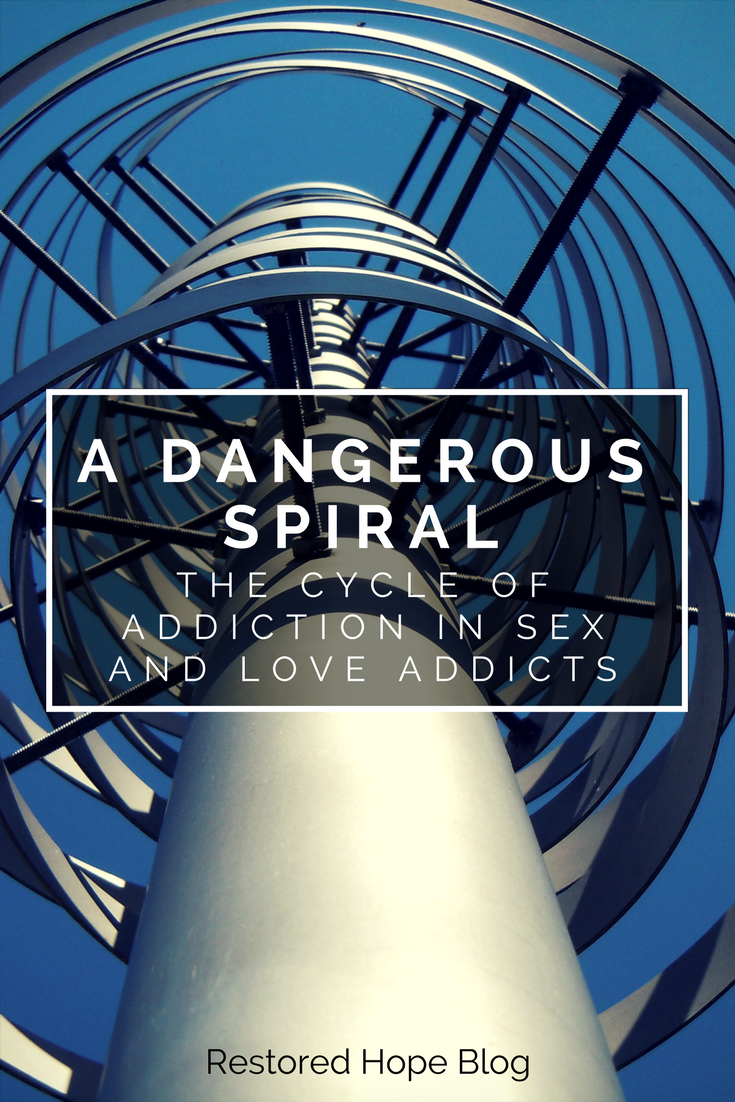Did you ever lie about anything when you were a kid? Maybe you broke your mother’s favorite vase. Maybe you snuck out of the house in the wee hours of the night. Or maybe you just took an extra cookie out of the cookie jar.
Check out how this kid responds to being found out. Did this ever happen to you?
Why do you think this little boy lied about eating the sprinkles? It’s obvious to everyone else around him that he’s lying – the evidence is right there on his face and between his teeth. I imagine he probably felt ashamed about what he had done. He didn’t want to be found out, and he figured that since his mother didn’t see him eating the sprinkles, she probably wouldn’t know he had done it. I wonder if, by the end, he’d been lying about the sprinkles for so long that he actually believed he hadn’t done anything wrong.
Notice the boy’s response when his mom does confront him about the sprinkles on his face. He continues to deny that he ate them, and he slowly backs away from her. Have you ever done this? When you’ve been caught in a lie, do you hide? I wonder if he was afraid of punishment. Maybe he wanted to be a “good boy.” Or maybe he worried about what his mom would think of him, if she would still love him.
When you’ve been caught in a lie, do you hide?
This pattern of deception, denial, and eventually getting found out characterizes the stories of most sex addicts. Addicts likely feel shame about their behaviors, so they hide from their spouses or loved ones as long as possible. This pattern of deception continues to the point that the addict begins to believe his or her justifications for the lies, and may begin to forget or discount the consequences of his or her behavior. Particularly for women, hiding is common because sex addiction is perceived as a male-dominated issue and can carry intense messages of shame for women.
Eventually, addicts get found out. Whether the shame of living in addiction eventually becomes too much, or the addict is discovered, the spouse or their friends will eventually discover how the addict’s behavior affects them. But even after being found out, addicts often continue to hide, either through denial (which makes their spouse feel crazy) or only telling parts of their story.
Particularly for women, hiding is common because sex addiction is perceived as a male-dominated issue and can carry intense messages of shame for women.
I recently read a memoir written by a female sex addict in which she talked about the pivotal moment of her recovery coming when she chose to be honest about a relapse. In the past, it would’ve been easy for her to hide instead of coming clean about what she had done. However, when she did share in the midst of her 12 Step meeting, she was met with kindness and grace from the fellow members of the group.
Honesty is the first principle tied to the 12 Step program for a reason. There is no recovery when there is continuing deception. We need to learn to be honest. If we deceive ourselves and others through denial, justification, and entitlement, we will never experience healing. We need to admit that we are powerless over our addictions in order to grow. Chances are, someone in your accountability group or 12 Step program has probably already suspected that you might be lying or hiding information. Just like the boy in the video, we give cues and often later realize that others knew more than we thought.
There is no recovery when there is continuing deception.
And yet, honesty is often one of the most vulnerable places we can find ourselves in. When we choose to be honest, particularly about behaviors or desires tied to addiction, we often are admitting flaws or areas of intense, overwhelming shame. Shame thrives in isolation. As we continue to hide and run away from others because of fear that they will see us as flawed and broken, we confirm the message to ourselves that we are unlovable.
As Brené Brown says in her TED talk about vulnerability, we must connect with others in order to move through shame. And the only way we can connect with others is to be honest with them. Honesty invites intimacy. Imagine the life you could be living in freedom from your addiction. In order to grow in this freedom, it is crucial to be honest with ourselves and with others in the process of recovery.
As we continue to hide and run away from others because of fear that they will see us as flawed and broken, we confirm the message to ourselves that we are unlovable.
My challenge to you this week is to be honest with someone safe in your life, like a sponsor or accountability partner. Maybe there’s an area of your addictive behavior that feels too shameful to admit. Maybe there’s an area you’ve been in denial about for years, and you’re starting to believe that you might be more impacted by it than you realize. Maybe there’s a dark side to your desire that frightens you.
Open up. Share that weakness with a trusted confidante. It will be vulnerable, and it likely will be painful. But as you open up with others in your life, you’ll be able to experience genuine connection, intimacy, grace, forgiveness, and love.





















